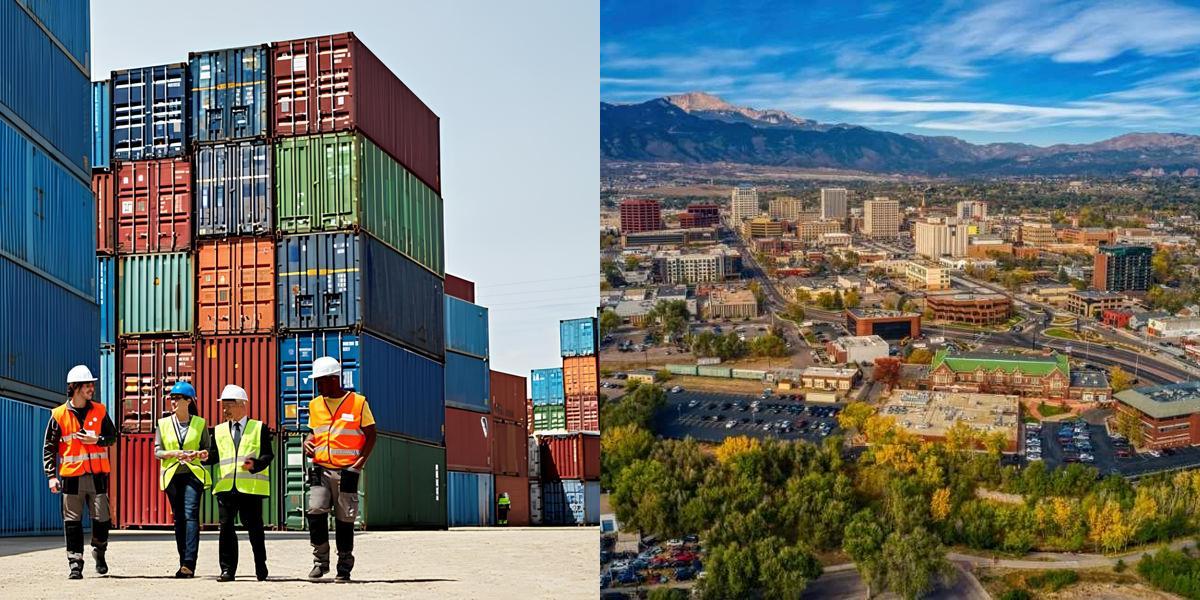How to Become a Logistics Coordinator in Colorado

Logistics coordinators play a crucial role in the transportation and distribution of goods. They are responsible for managing the flow of products, ensuring timely delivery, and coordinating with various stakeholders to optimize efficiency. If you're interested in pursuing a career in logistics in Colorado, here's what you need to know:
2. Network and Attend Industry Events
Networking is a crucial part of finding a job in any industry, and logistics is no exception. Attend industry events, conferences, and trade shows to meet professionals in the field and learn about job opportunities.
Joining professional associations and organizations related to logistics can also be a great way to network and stay updated on industry trends and job openings. Many associations offer networking events, webinars, and online forums where you can connect with other professionals in the field.
3. Search for Job Opportunities
There are several ways to search for job opportunities in logistics. Start by checking online job boards and career websites, such as Indeed, LinkedIn, and Glassdoor. These platforms often have a wide range of job listings in the logistics field.
You can also reach out to logistics companies directly to inquire about job openings. Many companies have career pages on their websites where you can submit your resume and cover letter for consideration.
In addition, consider working with a recruitment agency that specializes in logistics and supply chain management. These agencies can help match you with job opportunities that align with your skills and qualifications.
4. Prepare for Interviews
Once you start receiving interview invitations, it's important to prepare thoroughly to increase your chances of success. Research the company and the role you are applying for, and prepare answers to common interview questions.
Highlight your relevant skills and experiences during the interview, and demonstrate your knowledge of the logistics industry. Be prepared to discuss how you have overcome challenges and solved problems in previous roles, as this is often a key aspect of logistics work.
Career Paths and Opportunities after Becoming a Logistics
After obtaining a logistics certification and landing a job in the field, there are several career paths and opportunities you can pursue. Here are a few examples:
1. Supply Chain Manager
Supply chain managers are responsible for overseeing the entire supply chain process, from sourcing raw materials to delivering finished products to customers. They coordinate logistics, procurement, production, and distribution activities to ensure the smooth flow of goods and materials.
As a supply chain manager, you may be responsible for managing a team of logistics professionals and working closely with suppliers, manufacturers, and customers. This role requires strong leadership, communication, and problem-solving skills.
2. Warehouse Manager
Warehouse managers are responsible for overseeing the operations of a warehouse or distribution center. They ensure that goods are received, stored, and shipped efficiently, and manage a team of warehouse staff.
In this role, you may be responsible for inventory management, order fulfillment, and implementing warehouse processes and procedures. Strong organizational and analytical skills are essential for success in this role.
3. Transportation Manager
Transportation managers are responsible for managing the transportation of goods and materials, both domestically and internationally. They coordinate the movement of goods by air, sea, rail, and road, and ensure that deliveries are made on time and within budget.
In this role, you may be responsible for negotiating contracts with carriers, optimizing transportation routes, and managing logistics software and systems. Strong negotiation and problem-solving skills are essential for success in this role.
4. Logistics Analyst
Logistics analysts are responsible for analyzing and optimizing logistics processes to improve efficiency and reduce costs. They use data analysis and modeling techniques to identify opportunities for improvement and make recommendations to management.
In this role, you may be responsible for analyzing transportation routes, inventory levels, and order fulfillment processes. Strong analytical and problem-solving skills are essential for success in this role.
How much does a Logistics Coordinator make?
The salary range for logistics coordinators can vary depending on factors such as experience, location, industry, and company size. On average, the starting salary for a logistics coordinator ranges from $35,000 to $45,000 per year. However, with more experience and expertise, logistics coordinators can earn salaries in the range of $45,000 to $65,000 per year or even higher.
Final Thoughts
Obtaining a logistics certification can be a valuable step towards a rewarding career in the field. Whether you choose to pursue a certification through a professional association, complete an education program, or gain on-the-job experience, the knowledge and skills you gain will enhance your job prospects and open up a range of career opportunities.
Remember to update your resume and cover letter to highlight your certifications and relevant experience, and network with professionals in the field to increase your chances of finding job opportunities. With the right skills, qualifications, and determination, you can build a successful career in logistics.
Dreambound has you covered with a series of detailed guides, each designed for a different city. And if you're elsewhere or considering a move, we've got more guides that might fit your needs.
- Logistics classes near me in Augusta
- Logistics classes near me in Hartford
- Logistics classes near me in Nashville
- Logistics classes near me in Poughkeepsie
- Logistics classes near me in Virginia Beach
Are you exploring diverse professional opportunities? Take a closer look at these resources that Dreambound has written to help in your search.





